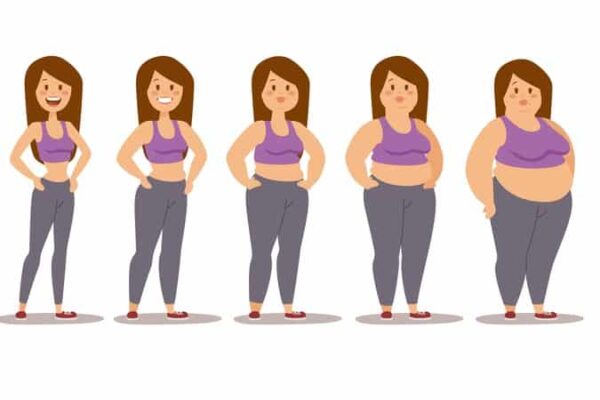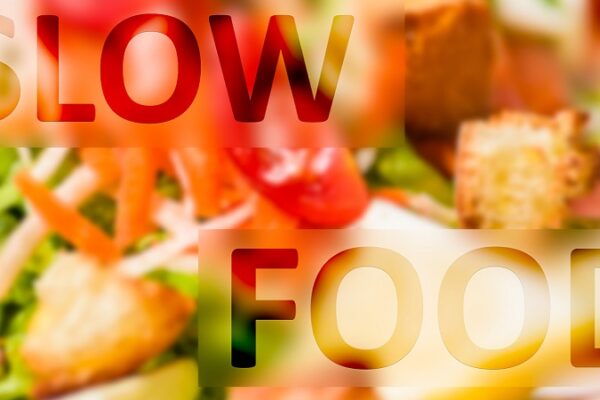You open the fridge, search, search, search, and find nothing – even though it’s full of options! It’s not that you have an empty stomach, you just feel like eating something. Does this sound like you? Well, know that this is very common and can be Psychological hunger.
Have you ever heard of that expression? Well, let’s break it down – I need to say before we begin that it’s neither serious nor wrong, nor is it the great cause of obesity in the world. Feeling psychological hunger is something absolutely normal!
I always say that human beings are nourished by food and feelings!
I want to help you understand what this concept is, and also that hunger is not always physiological. Sometimes it can manifest itself simply because of some psychological or behavioral reason.
It may have to do with the moment we’re living, with our environment, with the people around us, our level of stress and several other factors. So it’s important to really understand what types of hunger there are so that you can distinguish between them.
That way, it will be much easier to deal with your sensations and the needs of your body. With ease and without guilt. Let’s go?
Psychological hunger vs physiological hunger
I suggest we start with physiological hunger. This is your physical hunger. I’m talking about the signal that your body sends you when it needs to eat to survive, to eat nutrients to perform its vital functions.
It appears in various forms such as that annoying little pain in your stomach, dizziness, headache, irritation… You know, instinctively, that you need to eat something or your body will “conk out” or you’ll become an animal!
Psychological hunger has nothing to do with our physiological needs, but our mental state. Within it, there are some subdivisions that are being studied. Believe me: there are many types of hunger!
But today I’m going to speak about the three most common types of psychological hunger, which are emotional hunger, social hunger and cravings. Let’s understand a little more about each one.
The secret is not restriction / diet, but to seek to eat better. Learn about the Sophie Effect!
Cravings
Unlike physiological hunger, a craving appears even if you’re not hungry. Want an example? You turn on the television and see a carrot cake on some program. Immediately, you remember the cake your grandmother made especially for you when you were a child.
You may have just eaten breakfast, be fully satiated, but you always have a little space for a craving. And if you don’t eat it at that time, you’ll probably be thinking about the cake all day.
A craving is something very specific, that is, you know exactly what you want. You clearly know which flavor you want to taste. And in this case, my recommendation is: satisfy it! Because unsatisfied cravings can lead to binge eating.
You know that thing about trying to have “willpower” to resist something? Your craving will probably only accumulate and come back more sharply later. Therefore, resolve your craving, with pleasure, moderation and without guilt. It’s better than overdoing it later.
Social hunger
Social hunger is what we feel when we’re at parties, gatherings, meetings with friends and family. It’s that feeling of sharing food, of chit-chatting while eating and drinking nice things.
You may not even be hungry, but you’ll certainly end up eating, because it’s instinctive, humans have always celebrated around food. An important thing to talk about is that, at these times, it’s normal to overdo it.
People often think, but if I wasn’t hungry, why did I eat so much? Don’t blame yourself: overindulgence in these cases is understandable. But the more mindful you are about your body’s needs, the less chance there is of overdoing it and also after this, it is going to take more time before you feel hunger again…
You don’t have to count every calorie you eat, but it’s interesting to try to find a middle ground: you can eat different things, try new flavors. Our taste buds love new things! Remember to live those moments by being more mindful and less distracted.
But without greed, and also have the awareness that these moments are occasional and that, throughout the week, you should resume your normal eating routine.
Emotional hunger
I left this for last because it’s the most complex. Emotional hunger comes at a time when we feel we need to compensate ourselves with food for something that has shaken our emotional state. Examples: a very tiring day at work, excessive traffic, a fight with someone dear to us, discouragement at some stage of our life, sadness, emptiness.
This is where the classic thought “I deserve this” comes in. You believe you really need to eat something very yummy to try to solve this inner anguish. The problem is that the brain is smart, and knows that the compensation is greater with sugar and fatty foods.
So the first things you think about are rich foods, such as: chocolate, cakes, biscuits, sandwiches with butter, ultra-processed products… or have you ever thought about compensating yourself with broccoli?
Emotional hunger is problematic because it causes people to have the wrong relationship with food. You eat for other reasons than hunger or desire, you eat because you’re sad or tired or anxious or… thirsty… Ideally you should seek help to find the root of this problem.
Sadness, irritation or anguish will not go away if you eat a candy bar. It may even bring a momentary euphoria, but wouldn’t it be more appropriate to heal these negative feelings by looking for their origin? And instead eat this chocolate in a happy moment, in peace? Think about it.
A calm relationship with food
I would like to end this article by saying: don’t be afraid of your psychological hunger! Eating is physiological and psychological, and if you only focus on calories and the amount of things you put on your plate, you may be neglecting something deeper and more important to your health that is within you: the pleasure of eating. You may also be more willing to not allow yourself to eat with pleasure and without guilt, because you feel you’re only “authorized” to eat when your stomach is growling.
I’m in favor of a calmer relationship with food, as this is what lessens the obsession with diets. Why don’t you start paying more attention to what kind of hunger you’re feeling? What are you hungry for? Respect yourself and take care of yourself, you’re the best person to know what you need right now. How about putting that question on your menu?
Bon appétit!
See more:
- Lose weight without dieting? Yes, this is possible!
- Is it possible to get thinner with natural juices to lose weight?
- Tips for healthy eating habits










